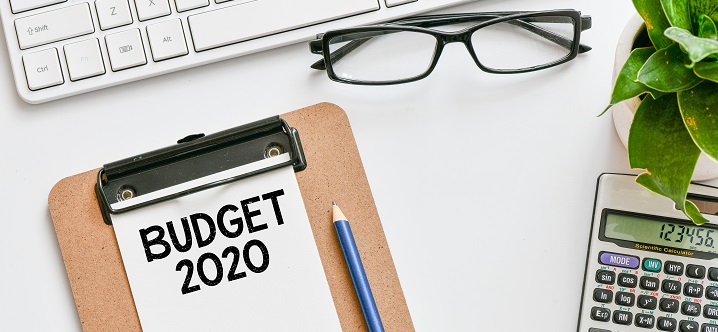
On Wednesday 11th March 2020, the newly appointed chancellor, Rishi Sunak, stood up to deliver the first Budget of Boris Johnson’s majority government.
As expected, the first issue addressed by the chancellor was Coronavirus. Mr Sunak said that the government is doing everything necessary to keep the UK financially secure. Although there is likely to be a “temporary disruption to our economy”, the chancellor stressed that the impact will be temporary and “life will return to normal”.
Earlier in the day, the Bank of England announced an emergency cut in interest rates from 0.75% to 0.25%, helping businesses and households get through the current economic shock.
Mr Sunak acknowledged that the virus is a challenge facing our country today, but it is not the sole challenge. Moving onto the theme for the day, the chancellor introduced the 2020 Budget as a “plan for prosperity tomorrow”.
Here is a summary of the main points:
The economy and public finances
- Inflation forecast of 1.4% this year, increasing to 1.8% in 2021/22
- Economy predicted to grow by 1.1% this year, revised down from 1.4% a year ago (the figure does not take into account the impact of coronavirus)
- Growth predicted to reach 1.8% in 2021/22, 1.5% in 2022/23 and 1.3% in 2023/24
- The International Monetary Fund (IMF) estimates that the global economy grew by 2.9% in 2019, down from 3.6% in 2018, and the slowest growth since the financial crisis.
- The OBR has predicted debt will reduce by the end of the Parliament in 2024.
Coronavirus
- £12 billion plan to provide support for public services, individuals and businesses, whose finances are affected by COVID-19.
- Businesses with fewer than 250 employers will have the cost of providing statutory sick pay for up to 14 days refunded by the government.
- Statutory sick pay will be paid to everyone advised to self-isolate, even if they don’t show symptoms.
- Self-employed workers who are not eligible for sick pay will be able to claim contributory Employment Support Allowance.
- Businesses can get up to £1.2m in a temporary loan to cover the business disruption.
- Business rates to be abolished for properties with a rateable value below £51,000.
Alcohol, tobacco and fuel
- Business rate discounts for pubs to rise from £1,000 to £5,000 this year.
- For only the second time in 20 years, duties on all alcohol will be frozen.
- Tobacco taxes will continue to rise by 2% above the rate of retail price inflation, adding 27p to a pack of 20 cigarettes and 14p to a packet of cigars.
- Despite rumours that there would end to the freeze on fuel duty, Mr Sunak says it will continue.
Tax, VAT and wages
- The National Insurance threshold will increase to £9,500, saving 500,000 employees just over £100 a year.
- The government has pledged extra funding to support HMRC’s crackdown on tax avoidance, which the chancellor said would create an additional £4.4bn in revenue over the next five years.
- VAT on digital publications, including ebooks, newspapers and magazines, to be removed from December.
- The National Living Wage will be increased and is to hit £10.50 by 2024.
- Capital Gains Tax allowance to increase in line with Consumer Price Index inflation by £300 from April to £12,300
Pensions and ISAs (Individual Savings Accounts)
- Both tapered annual allowance income thresholds to increase by £90,000, taking 98% of consultants and 96% of GPs out of the taper altogether.
- Junior ISA and Child Trust Funds limit to rise from £4,368 to £9,000 per year for 2020-21.
- The Lifetime Allowance will also rise in line with inflation for 2020-21, increasing from £1,055,000 to £1073,100.
Business, science and digital
- Entrepreneurs’ Relief will remain, but the lifetime limit will decrease from £10m to £1m.
- £3,000 cash grant per business for those eligible for business rate relief.
- Corporation Tax is frozen at 19%, reversing a previous plan to cut it to 17%.
- Employment Allowance to increase from £3,000 to £4,000 in April 2020
- Science Institute in Weybridge, Surrey to get £1.4bn funding boost.
- An additional £900m for research into nuclear fusion, space and electric vehicles.
- £5bn to get gigabyte broadband in the most inaccessible parts of the UK.
Housing and infrastructure
- More than £600 billion is set to be spent on roads, rail, broadband and housing by the middle of 2025.
- £2.5bn to be made available for fixing potholes and resurfacing roads over five years.
- £1.5bn of new capital over five years to go towards improving the condition of further education colleges.
- Stamp duty land tax surcharge of 2% on purchases by non-residents being introduced from April 2021.
- A £650 million package to tackle homelessness, providing an extra 6,000 places for rough sleepers
Environment and energy
- From April 2022 the levy on electricity will be frozen but the levy on gas will rise.
- From April 2022 manufacturers will be charged £200 per tonne for packaging made of less than 30% recycled plastics.
- A package of £1bn is to be spent on green transport.
- Total investment in flood defences in England is to double to £5.2bn over the next five years.
- £640m “nature for climate fund” to protect natural habitats in England.
Questions?
Want to know whether you’re better or worse off following the Budget? This Budget calculator will tell you more about how your finances might be affected.
We also have a downloadable guide that discusses the key points above in more detail.
If you have any questions about the Budget and how it might affect you, please do not hesitate to get in touch.

